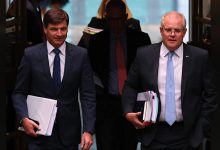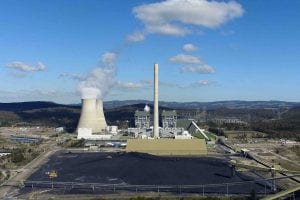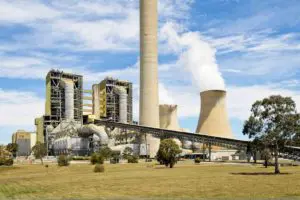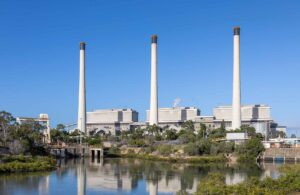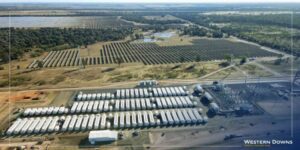The chief watchdog over federal government expenditure has flagged a potential audit of the Morrison government’s Underwriting New Generation Investments (UNGI) program in response to suggestions that the controversial initiative may be unlawful.
The issue was initially raised by think tank The Australia Institute, raising concerns that the Morrison government appeared to be progressing moves to provide funding to new gas generators and coal power station upgrades under the UNGI program, despite publishing no guidelines for how funding would be awarded and no legislation necessary to authorise the funding has passed parliament.
The Morrison government announced the UNGI program in late 2018, in response, it said, to an ACCC recommendation that the federal government help underwrite new generation projects to support small to medium industrial and commercial energy users to access lower cost supplies of electricity.
Under the program, the government will consider providing grants, loans or other guarantees to financially underwrite new generation projects, and has shortlisted a range of coal, gas and pumped hydro energy storage projects.
However, despite some urgency before the last election, little has happened since. No project initiatives have been finalised, and the energy industry – from individual developers, through to big utilities such as AGL and even the head of the Energy Security Board – says the uncertainty over the UNGI process is halting private investment elsewhere.
In a reply to the Australia Institute, the Australian National Audit Office (ANAO) has said that it is actively considering the inclusion of the UNGI program as part of its 2020-21 audit work program.
The ANAO serves as a dedicated auditor for the activities of the federal government, including by undertaking regular audits of federal government departments and reviews of government expenditure.
The move would put the UNGI program under the spotlight of the expenditure watchdog and may raise questions about the lack of transparent process being followed by the Morrison government, with much of the decisions to date happening behind closed doors.
As reported by RenewEconomy, while the Morrison government has drafted the necessary legislative amendments to establish the UNGI program, but with parliament suspended due to the Covid-19 pandemic, there is no clear pathway for the necessary amendments to be passed by Parliament.
According to the legal advice provided to the Australia Institute, if the Morrison government fails to pass the required legislative amendments, the UNGI program could be left open to a legal challenge on the basis that it is unconstitutional.
RenewEconomy has made several requests for information from various government departments about what progress is being made on the UNGI program. The universal response has been that negotiations are still being progressed with prospective projects, but have none have been finalised.
The ANAO undertook the well-publicised audit of the Morrison government’s controversial sports grants program, that uncovered a change of questionable processes that, according to legal experts, strayed into areas of unconstitutionality, and that ultimately led to the resignation of former sports minister Bridget McKenzie from the federal cabinet.
With respect to the UNGI program, the Australia Institute has received legal advice that it was likely that there is currently no constitutional or legislative basis or the Morrison government to award funding under the UNGI program.
While no funding has been formally awarded under the UNGI program, despite it now being more than a year since an initial shortlist of 12 projects was announced by Scott Morrison, negotiations are still being progressed for several prospective projects.
The shortlist included six pumped-hydro storage projects, five gas generator projects and a proposed upgrade to the Vales Point coal-fired power station.
Two gas fired generators, planned for Victoria and Queensland, were announced as the first two UNGI projects that had advanced to more detailed negotiations with the Morrison government.
An additional three projects have been earmarked for New South Wales, as was agreed under a bilateral detail between the state and federal governments. This included up to $11 million in funding for upgrades to the Vales Point coal-fired power station.
But none of these projects have reached a final investment decision, as the government has yet to secure parliamentary authorisation for the UNGI funding commitments.
Existing funding bodies, such as the Australian Renewable Energy Agency and the Clean Energy Finance Corporation each have their own pieces of legislation that establish each agency, allocate funding and provide guidelines on how that funding is to be used.
It is understood that the government will seek to amend the legislation for the Clean Energy Finance Corporation (CEFC) to enable additional funding of up to be $1 billion to allocated to the Grid Reliability Fund, which will, in turn, be used to finance the UNGI commitments by expanding the scope of projects the CEFC can invest in.
Both ARENA and the CEFC also happen to be subject to ANAO audits that are currently in progress, with findings due to be released later this year.
RenewEconomy and its sister sites One Step Off The Grid and The Driven will continue to publish throughout the Covid-19 crisis, posting good news about technology and project development, and holding government, regulators and business to account. But as the conference market evaporates, and some advertisers pull in their budgets, readers can help by making a voluntary donation here to help ensure we can continue to offer the service free of charge and to as wide an audience as possible. Thankyou for your support.

